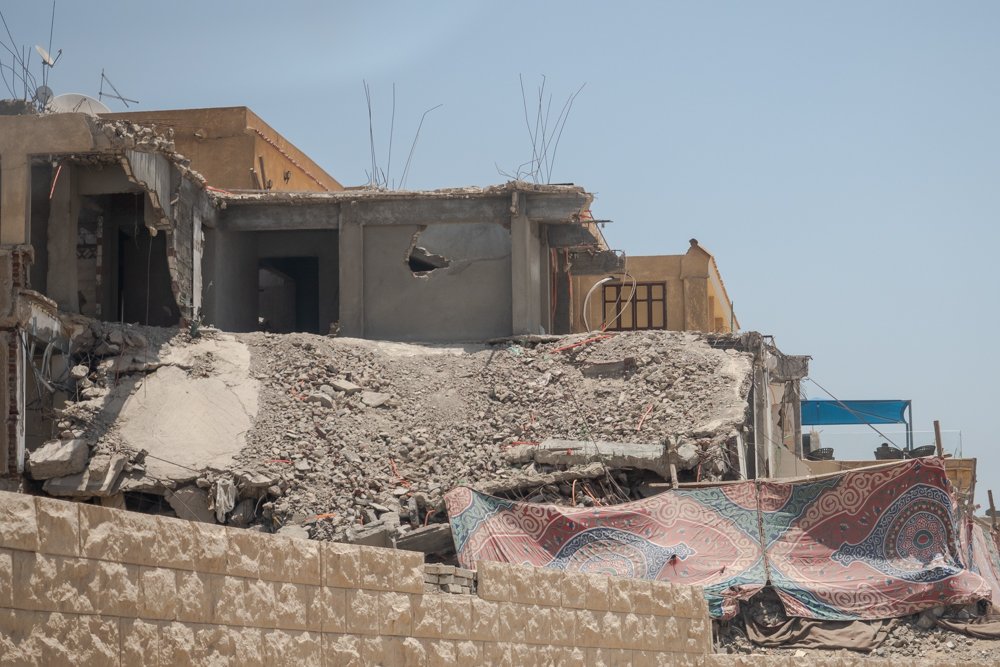Women, HIV & violence - Egypt
In the Middle East and North Africa (MENA) region, new HIV infections are on the rise.
This is in stark contrast to the global trend, which has seen an overall year-on-year reduction.
Although on paper Egypt still has one of the lowest prevalence rates in the world, HIV activists in the country - many whom practically work undercover due to high levels of stigma - will tell you that the stats are “wildly underestimated” and how “HIV in Egypt is a disaster”.
Due to gender inequality and norms, women and girls are disproportionately affected by this rise.
The ‘LEARN’ project supported women living with HIV and/or experiencing violence - because evidence shows that one increases the risk of the other.
Photography and stories for Frontline AIDS.
Except for staff, all identities have been concealed.
RELATED STORIES
Women in the kitchen.
"I think quashing female thought and independence has become normal. If you raise a daughter saying she should not go out, or have money, and that her brother has a say in anything she does, then she is not taught how to express herself, or defend herself.
Violence in the family home pushes girls out and into marriage. Violence from the husband pushes women out. Then she may sell sex. Violence from police officers means she has to to hide the fact, which means she doesn’t get to choose her clients, can’t negotiate safe sex, and so on.
It is very hard to put rights into practice."
- Reda Shukry, founder of Al Shehab Foundation, Cairo, Egypt.

High levels of HIV stigma means most people will conceal their HIV status, often even from close family.

Cairo is a mega-city (a city with a population of 10 million or more). The amount of people living with HIV is "wildly underestimated" according to activists, and many people die because they don't have access to ARVs - but the deaths aren't recorded as being HIV-related.

One of the neighbourhoods where the women meet in secret. They don't know where each others homes are so everyone feels protected.

Amirah had received a call from a doctor at the hospital who told her to "come now". She held her daughter for the last time.

“I walked the ring road at 2am to get to my baby at the hospital,” says Amirah, 27. "No-one would come with me. It was very dangerous at night, but there was no other way."

Shaimaa, 28, is an outreach researcher at the Al Shehab Foundation in Cairo. "I work here because there is a lack of HIV awareness. If people know the facts they can protect themselves." One woman asked if the cockroaches in her apartment could pass on the virus, indicating a low level of knowledge about HIV.

Women's needs are supported as holistically as possible. Choices around sexual and reproductive health and rights are often hindered when a woman is in a controlling relationship.

Accurate knowledge about HIV is hard to get hold of - as a result many people have treatment gaps or don't take treatment at all.

All the women interviewed had to ask permission to leave the house, either from their husband or their mother-in-law.

"I'm here, but you can't see me."



"I did my own research. It was small to start with, with just 13 women who were selling sex, plus people who had connections with them, such as late night mini-markets, taxi drivers, and concierges. People were hard to find as not many people wanted to admit to selling sex. Now, the supermarket sends me sex workers!" - Reda Shukry, founder of the Al Shehab Foundation.

Nutrition becomes additionally important when taking HIV medication. Many women tell how they have resorted to sex work to buy food for themselves and their children. Either because their husband had left them, or died, and they were not financially independent, or because after paying bills and buying drugs, food was at the bottom of the list.

"What do you think it felt like to hold my daughter and see her take her last breath? Do you know what it is like to lose a part of yourself?” - Farah.

"When you have to keep everything in, not even tell your own mother, just meeting others in the same position is a huge relief. When I speak, I feel better - the silence has been broken.”

Alexandria. Close to the neighbourhood where MENA-Rosa's all-female leaders meet up.

Reda saw a need in her neighbourhood and started to address it - the organisation grew from there. The underestimated HIV data - and government denial - means Egypt has suffered from not having the real amount of investment needed.


